Afghanistan: 'I got the chance to go out and help people'
- Published
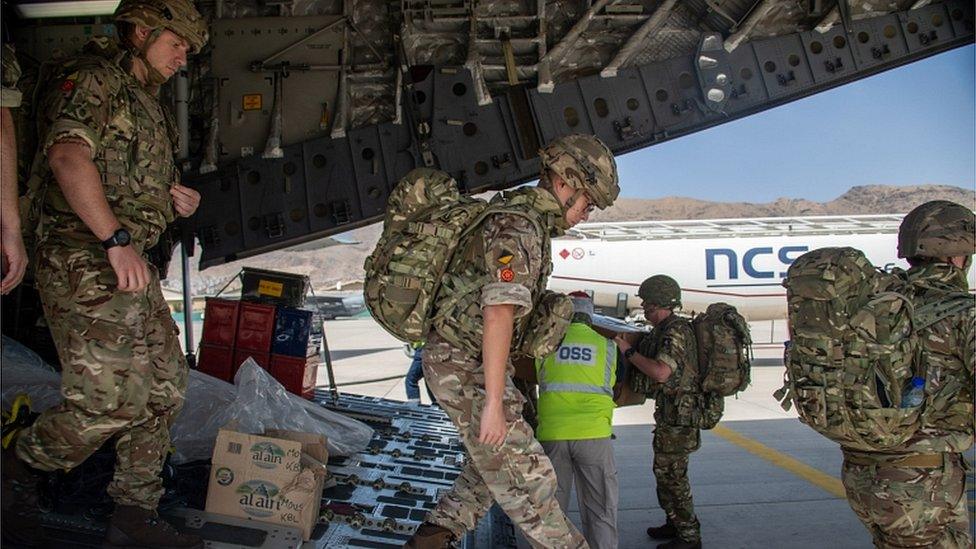
Most of the British soldiers involved in Operation Pitting came from the Colchester and Woodbridge-based 16 Air Assault Brigade Combat Team
More than 1,000 military personnel were involved in the evacuation from Afghanistan. Operation Pitting rescued 5,000 British and 8,000 Afghan nationals, including 2,100 children. What was it like for those involved?
Troops from 39 nations were involved in August's evacuation from Afghanistan, which followed the Taliban takeover of the country.
Most of the British soldiers who were involved came from the Colchester and Woodbridge-based 16 Air Assault Brigade Combat Team.
During their two-week mission they handed out 250,000 litres of bottled water, 25,000 bottles of baby formula and 9,000 nappies at Kabul airport.
The evacuation saw RAF transport fly 261,000 miles, the equivalent of 165 round-trip flights between UK and Afghanistan.

'That's the hardest tour I've done'
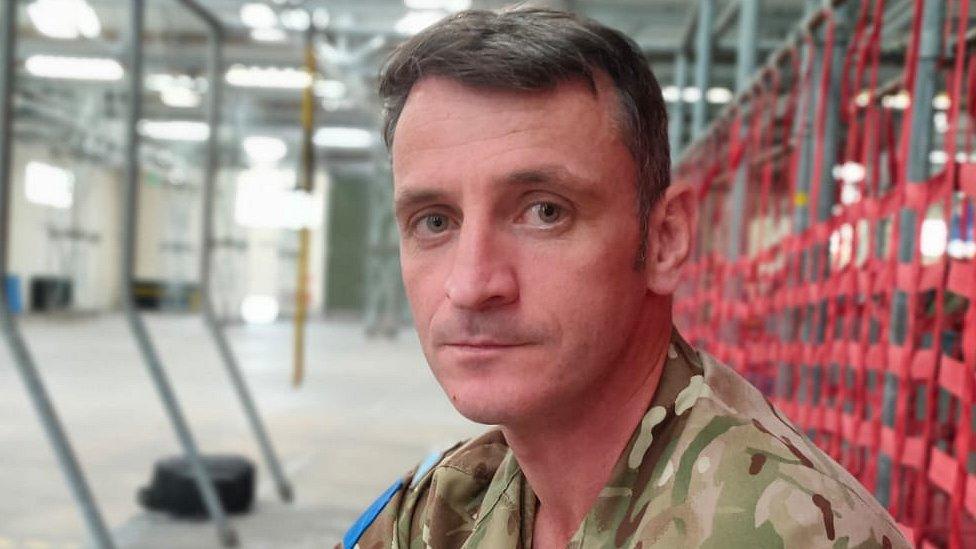
Warrant Officer class 2 Gary McMahon, of 2 PARA, has served in Afghanistan, Iraq and Northern Ireland
Warrant Officer class 2 Gary McMahon, of 2 PARA, was the senior soldier in a company that provided security and crowd management at the evacuation handling centre.
Before Operation Pitting he had carried out tours in Afghanistan, Iraq and Northern Ireland.
"That's the hardest tour I've done," he says. "The human side of that was much harder than any Herrick and I've been on three punchy tours.
"When people get killed and injured, you train for that, you expect it," he says. "I don't think anybody expected how Pitting was going to unfold.
"It was just seeing the human tragedy and being on the cusp of a humanitarian disaster.
"It was mentally tough. You are having to break families up because not everybody was entitled to come back, you are seeing people being crushed to death, kids crushed to death.
"Sometimes you could get people out of it, sometimes you were powerless - you are watching it happen and unfolding in front of you."

His company was very close to Kabul's Abbey Gate when an improvised explosive device (IED) exploded, killing nearly 200 people, including two Britons and 13 US personnel.
"We were co-located with the Americans at the Abbey Gate. There were guys from 2 PARA who got blown over by the IED when it got the Americans unfortunately.
"We were aware of any threats and we had to keep our wits about us," he says. "The Taliban kept their side of the bargain. There were no incidents but there could easily have been."

'I'm so proud of everything I've done out there'
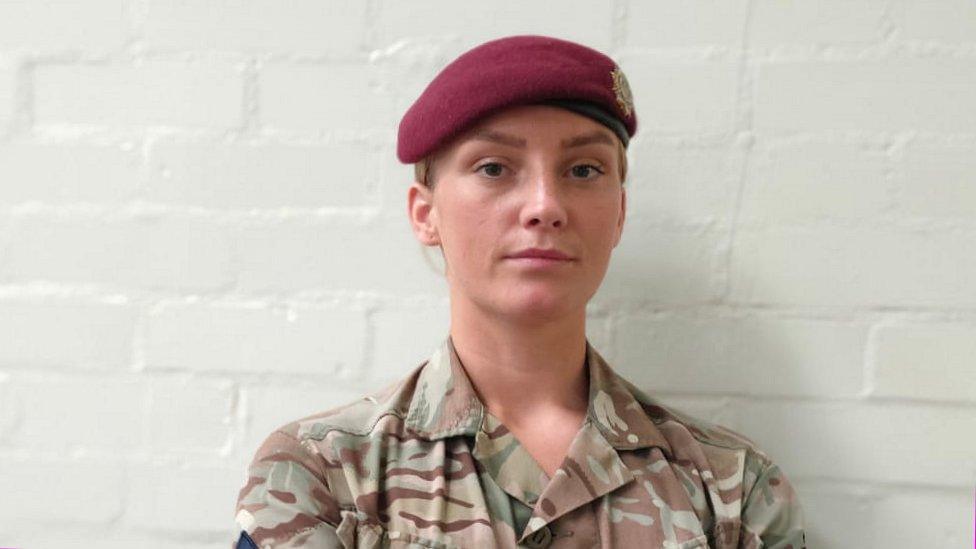
L/Cpl May Percival says everybody involved in the operation should be "proud" of what they did
L/Cpl May Percival helped process the female and child evacuees.
"You just had to be calm with them and not lose your head because they [evacuees] were already in a difficult situation," she says. "They saw us as a friendly face and they could come to us if they needed extra help.
"It was very daunting when I was told I was going," she says. "Going from Suffolk to Afghanistan was very different.
"Landing in Kabul, it was just so different.
"I'm so proud of everything I've done out there," she says. "Everyone should be proud of everything they've done.
"I got the chance to go out and help people which was the main operation part of it."

'I don't think I really knew what to expect'
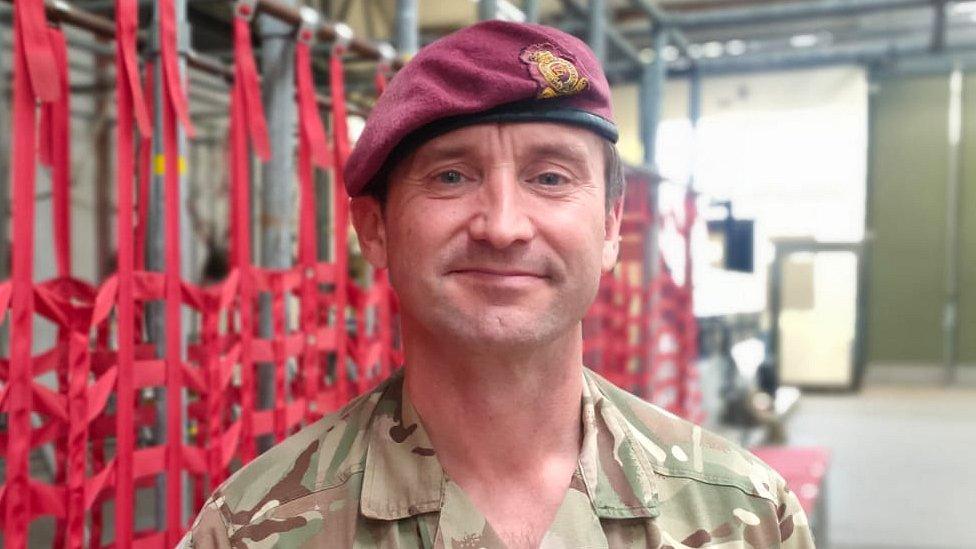
Lt Col Justin Baker was amongst the first British troops into the country in 2002 on Operation Fingal and amongst the last out with Operation Pitting
Lt Col Justin Baker, commanding officer of 7 PARA Royal Horse Artillery, has "mixed emotions" about Afghanistan.
He was amongst the first British troops into the country in 2002 on Operation Fingal and amongst the last out with Operation Pitting.
The most recent mission, he says, was "unique".
"It was a chaotic situation," he says. "The situation in Kabul unfolded remarkably quickly and I think in those circumstances order gives way to chaos.
"I don't think I really knew what to expect to be honest. It was a unique deployment," he says.
"I think it became quickly apparent when we arrived on the ground that it was a unique situation from our previous experiences in Afghanistan.
"But the brigade in a very professional manner adapted to the situation and it got on with the job.
"The previous Herrick tours were very military focused, they fitted the military template of having what you'd classify as an enemy.
"This deployment was a humanitarian task, to extract as safely and quickly those civilians who were entitled to leave Afghanistan and come back to the UK."
He says he is proud of the job British forces have undertaken in Afghanistan in the past 19 years.
"There is a degree of mixed emotion there," he says.

'We will try and help them reconcile what they saw'
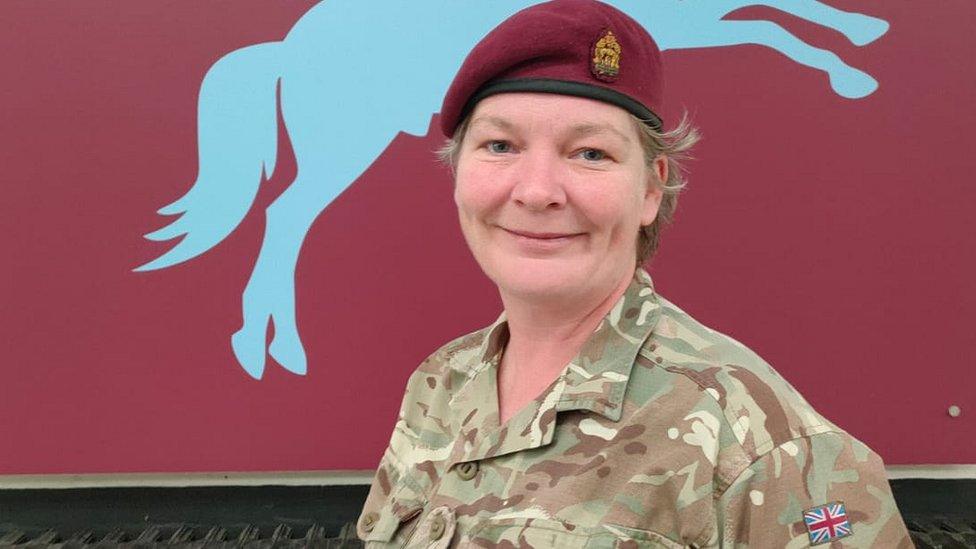
Maj Fiona Lankester says the soldiers involved in the operation will process what they saw in their own time
Maj Fiona Lankester, of 16 Medical Regiment, was involved in helping the troops manage post-operational stress on their return from Operation Pitting.
Personnel have a period of time called "decompression" which they undergo as a group before returning to the UK to see their loved ones.
"I'm sure the public will have seen the newsreels that came out from Kabul with regards to this deployment," she says. "I think the important thing to remember is that you could put 20 people in that situation and all 20 have the potential to react in a very different manner.
"From the point of duty of care, we look at service personnel in the sense of an individual and focus on them and what care they will need.
"Naturally when the soldiers deployed to Kabul, they were faced with an extraordinary humanitarian issue and I should imagine the process of decompression was focused very much on the women and children element.
"They are going to process that in their own time as they return to the UK," she says.
"What they saw will have a direct link with their home life - if they see a child in Afghanistan being treated unfairly or poorly then they can relate to that because they may have small children at home, they have wives and husbands at home.
"We can train for all sorts of circumstances, but training for seeing children being crushed, women being beaten is not something anybody can really train for.
"We have a duty of care to try and help them reconcile what they saw."

'You can only imagine the desperation'
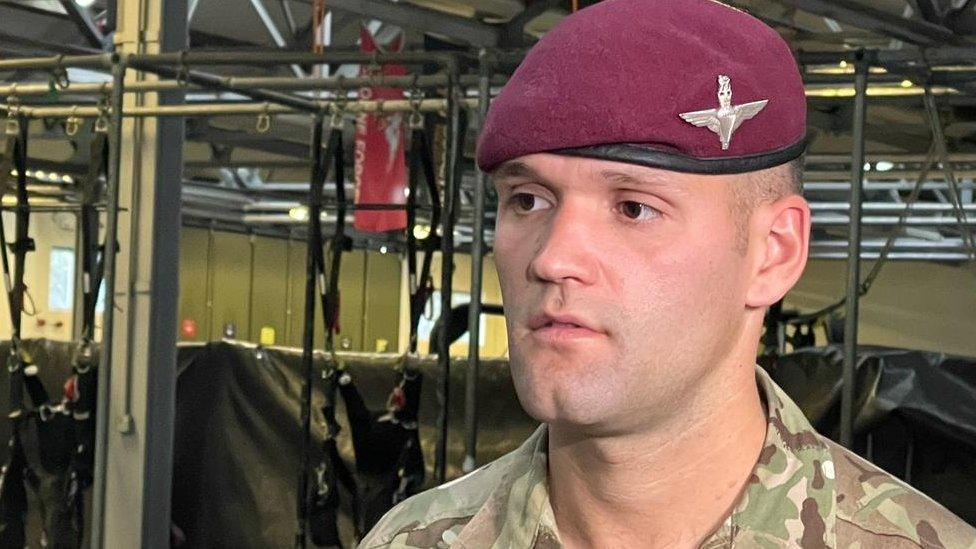
Operation Pitting was the first deployment in Pte Shayne Wilkinson's career with 3 PARA.
Operation Pitting was the first deployment in Pte Shayne Wilkinson's career with 3 PARA.
He was involved in security and crowd management at the evacuation handling centre.
"It was mentally and physically draining," he says. "You were rushing around and everything was at the snap of the fingers to get things done.
"Seeing all the refugees was mentally challenging," he says. "It got quite intense.
"The peoples' level of desperation, they want to get out, they want to be safe, and they found it hard to understand why we're there with riot shields.
"Obviously we were trying to control things for their benefit, and ours, to get the process going quicker.
"The toughest things would have been outside the Abbey Gate on the shield wall. It is quite hard to explain but being on the ground you see desperate people who feel they need to be inside the processing centre.
"They have travelled all over to be there so you can only imagine the desperation that they've got."

Find BBC News: East of England on Facebook, external, Instagram, external and Twitter, external. If you have a story suggestion email eastofenglandnews@bbc.co.uk, external